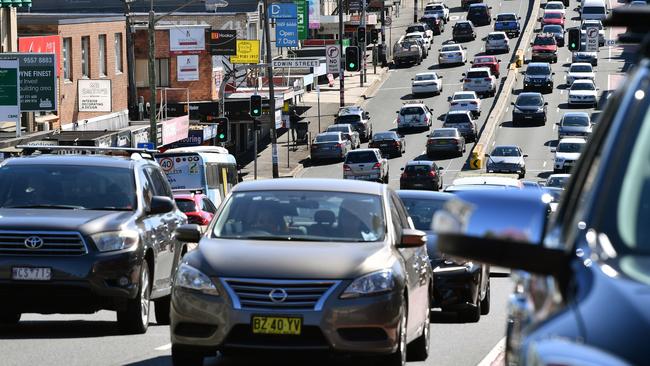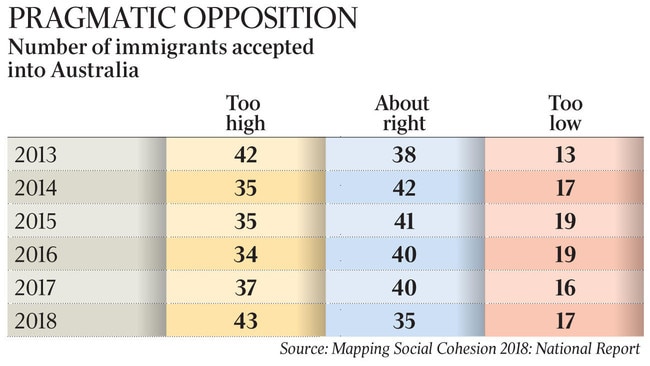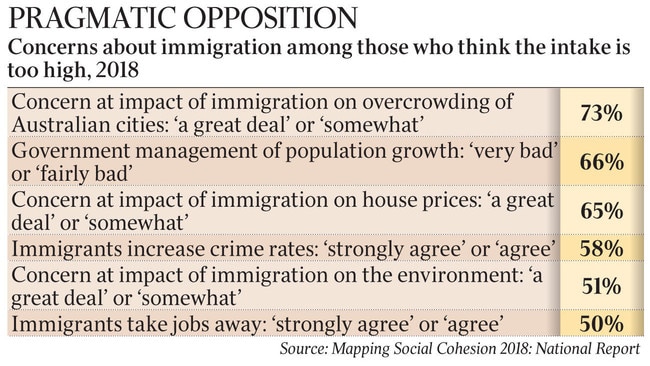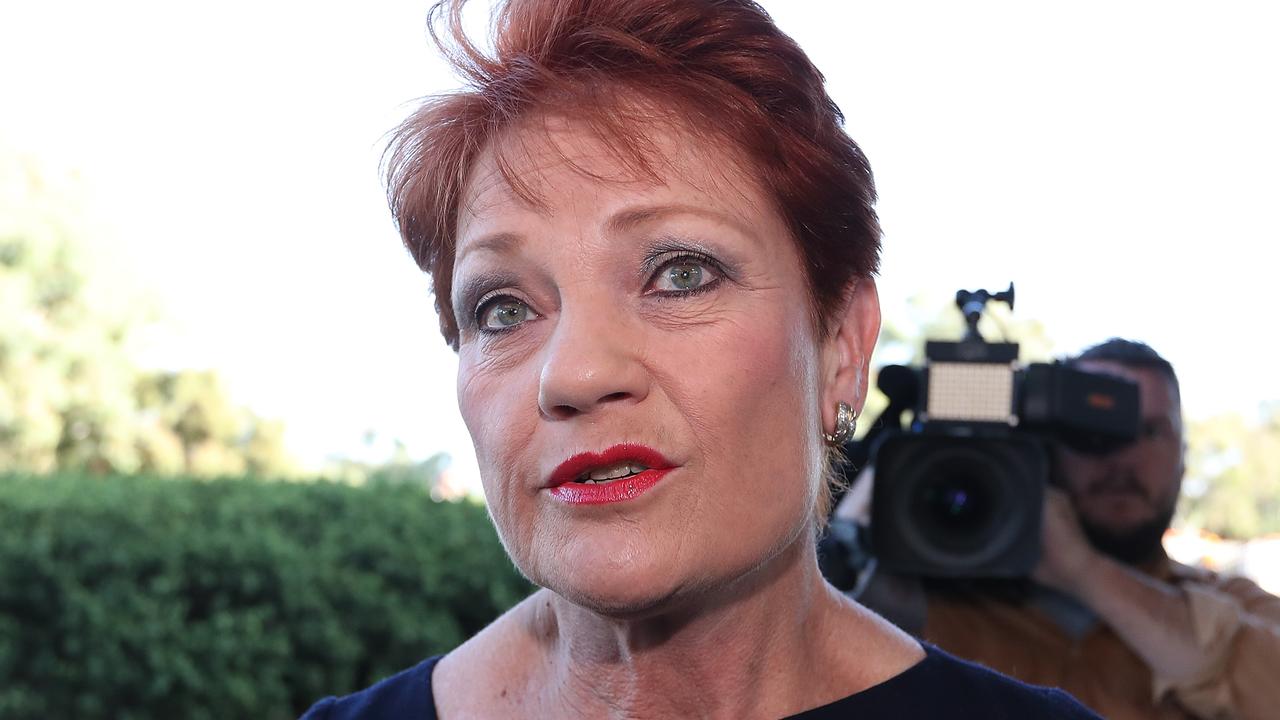Clogged cities driving calls for migration pause
Growing anti-immigration sentiment is overwhelmingly grounded in pragmatic concerns and not ideology, a survey has found.

A growing anti-immigration sentiment in Australia is overwhelmingly grounded in pragmatic concerns about overcrowding in major cities, house prices and poor government management rather than ideological opposition to multiculturalism.
A study of attitudes towards immigration conducted by the Scanlon Foundation found 43 per cent of respondents believed immigration was too high, a jump of nine points from two years earlier.
However, the survey shows support for multiculturalism remains strong, with 85 per cent of respondents agreeing it is good for Australia and a similar proportion recognising the benefits immigrants bring to Australia’s economy and society.
The survey, contained in the Scanlon Foundation’s annual Mapping Social Cohesion report, reveals a generational divide between younger and older Australians in their views about immigration. Only 20 per cent of respondents aged 18-24 believe the current intake is too high compared to a majority of Australians over the age of 55.
Anti-immigration sentiment is more pronounced in Sydney than Melbourne, among Coalition and One Nation voters than Labor and Greens voters, and in less educated respondents than respondents with tertiary qualifications.
The report’s lead author, Monash University professor Andrew Markus, said where surveys conducted within the past 10 months by Newspoll, Galaxy, Essential and the Lowy Institute had found majority support for cutting the immigration intake, this survey suggested anti-immigration sentiment has been exaggerated. Asked to name the most important issue facing the nation, only 7 per cent cited immigration, with the economy, the environment, the quality of our governments and political leaders, and social issues all given priority by more respondents.

“The general discourse out there is the public is over immigration, they want it cut now,’’ Professor Markus said. “Polls have established that proposition as valid and beyond question.
“So what is driving that? It is more the pragmatic concerns about perceived overcrowding and housing prices and lack of government planning. The xenophobic aspects of that — rejection of multiculturalism or the idea that immigration is good for the country — are much less significant for the average respondent.’’
This is supported by the gap between Melbourne and Sydney on immigration attitudes.
Although Melbourne is Australia’s fastest growing city, issues related to overcrowding, congestion and house prices are less pronounced there than in Sydney, where former premier Bob Carr famously declared the city full 18 years ago. Only 33 per cent of Melbourne respondents compared with 51 per cent of Sydney respondents feel immigration is too high.
The Mapping Social Cohesion survey, in its 11th year, was conducted in July and August, as Australia’s population was nearing 25 million. A total of 1500 respondents were surveyed by telephone and a further 2260 respondents returned questionnaires that they completed themselves.

The results show continued strong backing for a non-discriminatory immigration program, with between 15 and 22 per cent of respondents across the different methods of survey expressing support for the rejection of immigrants on the basis of race or ethnicity, and between 18 and 29 per cent supporting discrimination on the basis of religion.
The twin surveys also suggest that negative attitudes towards Muslims may be higher than what people are willing to admit.
In the interview administered sample, where the respondent is led through his or her answers, 23 per cent of respondents expressed a negative attitude towards Muslims, a proportion consistent with previous years. In the self-completed survey, the figure was 39 per cent.
Professor Markus said the difference could be attributed to a phenomenon known as “social desirability bias’’, where respondents are reluctant to provide answers to a questioner that make them appear bigoted or racist.


